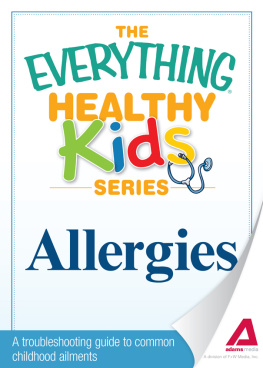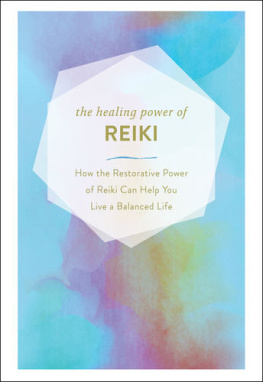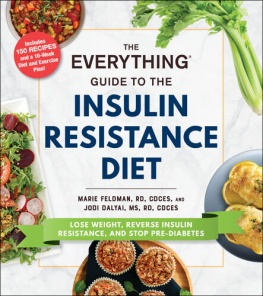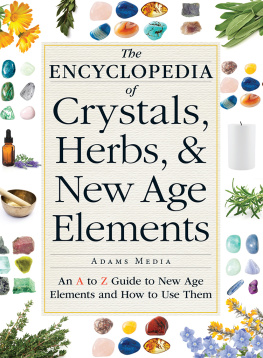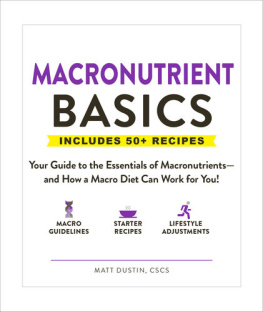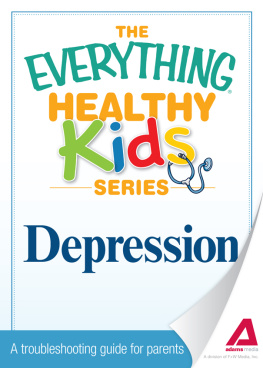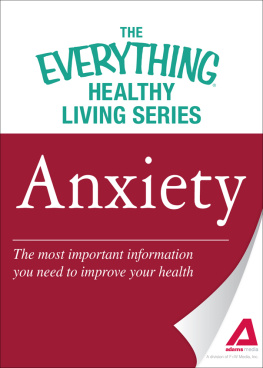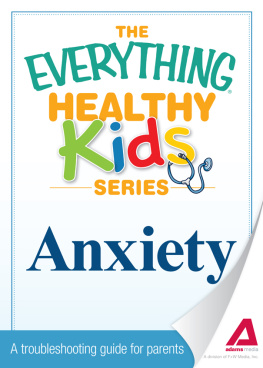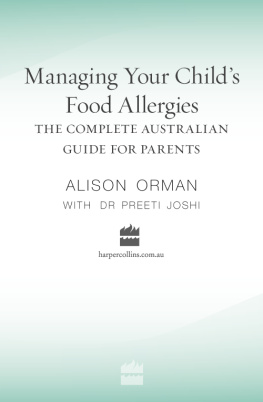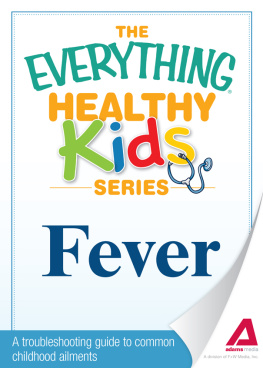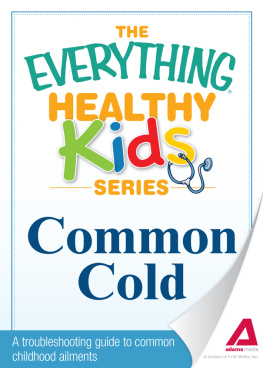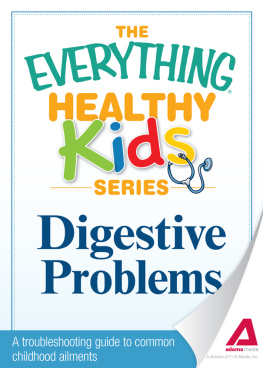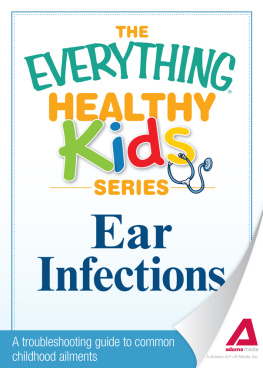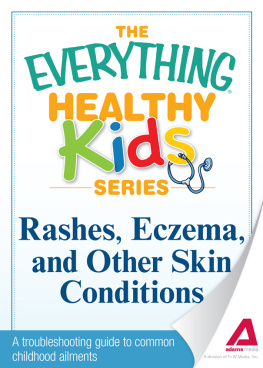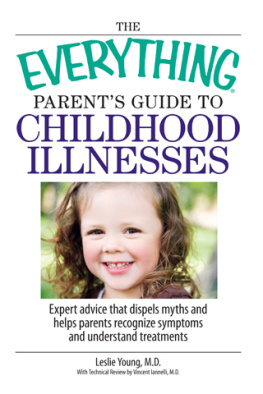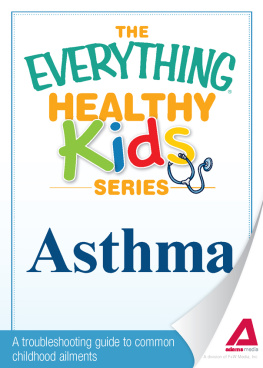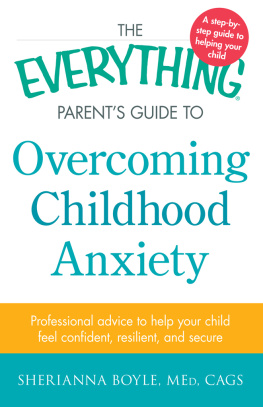Adams Media, a division of F+W Media, Inc.
For more than 10 years, millions of readers have trusted the bestselling Everything series for expert advice and important information on parenting and health topics ranging from pregnancy and postpartum care to asthma, dyslexia, and juvenile diabetes. Packed with the most recent, up-to-date data, Everything guides help you get the right diagnosis, choose the best doctor, and find the treatment options that work for your child.
The Everything Healthy Kids Series books are concise guides, focusing on only the essential information you need. Whether youre looking for information on how to treat ailments in children from infants to teenagers, advice on raising happy, well-adjusted kids, or suggestions for how to get your child to eat the right foods, theres an Everything Healthy Kids Book for you.
Childhood Illnesses
Few occasions provoke more anxiety in parents than when a child is ill, and it is the duty of the pediatrician to calm those parental fears in times of distress. The goal of the Everything Healthy Kids Series is not to discredit the ancient wisdom of parenthood. The innate instinct of parents often proves uncanny. Indeed, much of the knowledge that has been passed down through the generations has proved to be both practical and life saving. Everything Healthy Kids books are designed to supplement experience and instinct to empower parents with the latest, most accurate medical information. This allows you to make the best decision for your children when they are not feeling well.
While instinct and experience are often valuable, there are also numerous myths associated with childrens health. Though the origin of most of these misconceptions is obscure and lacking in supporting evidence, they tend to be tenaciously held by many parents. These guides will shed light on these areas of misunderstandings.
This book is not intended to serve as a comprehensive reference book concerning the care of your child. Rather, it is meant to complement medical source books such as those. A typical parent with children is likely to be too tired to read another comprehensive manual on how to raise children. Most parents are lucky to garner enough energy to make it through the day without collapsing. This is a book that you can read while your children are taking their afternoon naps. Not only does it provide an interesting read, it also educates you in a quick and easy format on how to better care for your loved ones.
Because this book is not written for medical professionals, no prior medical knowledge is required to read and understand the content. In fact, one of the aims of this book is to translate inaccessible information and make it available to every parent.
Lastly, this book was purposely designed to have a light tone and to be easy to read. Dealing with a sick child is stressful enough without having to wade through extensive medical jargon for a clear answer. This is definitely not a cut-and-dried medical textbook. At all times, the information is relevant to the reader and readily applicable to real-life situations.
If youd like to learn more about childhood illnesses, check out The Everything Parents Guide to Childhood Illnesses , available in print (978-1-59869-239-6) and eBook (978-1-60550-275-5) formats.
What Are Allergies?
The public and mass media use the term allergy loosely. Without a clear definition, a lot of confusion and miscommunication can result. From a medical and scientific perspective, an allergy is a condition in which the immune system reacts to something in the environment that is harmless.
The human immune system is an incredible thing. Its job is primarily to protect the human body from infections. You can imagine the immune system as the defense department of the body. When the body is under siege by microbes, the immune system sends out microscopic troops to ward off an invasion. Without an intact immune system, human beings would be constantly threatened by various infections.
However, having a large army of elite troops can be a double-edged sword. Sometimes the armed forces sound a false alarm and respond to an innocuous material from the environment. This response could be a localized mobilization, or it could be a full-scale assault on a nonexistent enemy. When the immune system reacts inappropriately to a benign target, the body experiences an allergic reaction.
While the topic of allergy is broad and encompasses skin allergies, asthma, hay fever, and other less common conditions, the discussion in this book is limited to nasal allergies and reaction to food or chemicals. It is worth mentioning here that skin allergy (commonly known as eczema), nasal allergy, and asthma are closely related conditions. These three conditions are all caused by an overactive immune system, and they tend to run within the same family. If Uncle Bob has nasal allergy and Grandpa has asthma, your child may be cursed with eczema. They are all really different manifestations of the same hypersensitive immune system.
Popular Misconceptions of Allergy
The nonmedical community often uses the word allergy to mean a variety of reactions to environmental exposures. For example, a lot of people believe that they are allergic to milk because they experience bloating, stomachache, and diarrhea after consuming dairy products. Others claim that their child is allergic to juice because she develops diarrhea after consuming a large quantity of it. Neither of these situations describes a true allergic condition because neither reaction involves the immune system.
In the first scenario, the reaction to dairy products described is most commonly due to lactose intolerance. These individuals lack the ability to digest the sugar in milk, so every time they consume any dairy product, the large amount of undigested sugar inside their intestine triggers a bunch of unpleasant feelings. This reaction involves the digestive system, not the immune system. In the second case, drinking excessive fruit juices overwhelms the intestine with sugar. Once again, this undigested sugar wreaks havoc in the body.
Alert
True lactose intolerance in babies is exceedingly rare. Most lactose-intolerant children and adults develop their intolerance in later childhood. Babies are almost universally capable of digesting sugars in milk. Ask your pediatrician so you dont switch unnecessarily to one of the expensive specialized formulas.
Unfortunately, the industry is quick to take advantage of these common misconceptions. They make lactose-free formula for babies who are allegedly allergic to milk, when in fact most of these babies have run-of-the-mill baby reflux. The lactose-free formula makes absolutely no difference in these babies symptoms. Of course, these specialized formulas cost more than the regular kind, and anxious parents who purchase these special formulas spend more than they need to in the false belief they are doing more to keep their child healthy.
Allergy to Cigarette Smoke
Many people avoid cigarette smoke because they think they are allergic to it. Even though this is not really true, it isnt a bad idea after all. Secondhand smoke is extremely dangerous and toxic. Even though smoke from cigars and cigarettes cannot trigger an allergic reaction in people, everyone should avoid it. When people experience a burning sensation in their nose and eyes in the vicinity of smokers, they are being irritated by the microscopic smoke particles. This reaction does not involve the immune system, so it is not considered an allergic reaction.

